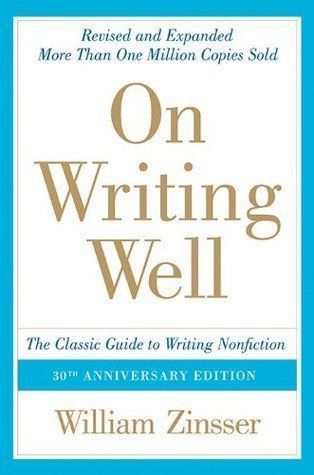
On Writing Well, 30th Anniversary Edition The Classic Guide to Writing Nonfiction
On Writing Well has been praised for its sound advice, its clarity and the warmth of its style. It is a book for everybody who wants to learn how to write or who needs to do some writing to get through the day, as almost everybody does in the age of e-mail and the Internet. Whether you want to write about people or places, science and technology, business, sports, the arts or about yourself in the increasingly popular memoir genre, On Writing Well offers you fundamental priciples as well as the insights of a distinguished writer and teacher. With more than a million copies sole, this volume has stood the test of time and remains a valuable resource for writers and would-be writers.
Reviews
Matt Stein@mattstein
Erwin Lemuel Oliva@erwinoliva
Eva Decker@evadecker
Deyana@dawndeydusk
Emma Friedheim@emrosemary
Sebastian Witowski@switowski
Magdalene Lim@magdalene
Clementine Jinhee@Clemhee
Lance Willett@lancewillett
Ilia Markov@ilia
Artas Bartas@artas
Thu Le@tple
Matheus Costa@zeniru
Toby Meek@tobymeek
Mustafa Hussain@mhussain
always online@tdoot
Bastien Vaucher@bastien
Serah@serah
E S@longflight
Taylor Murphy@tayloramurphy
Jens Obel@jensobel
Sanket Pathak@sanketpath
Stanley Wood@stanleywood
Caroline@ballele
Highlights
Dhrumil Patel@dhrumil
Dhrumil Patel@dhrumil
Dhrumil Patel@dhrumil
Dhrumil Patel@dhrumil
Dhrumil Patel@dhrumil
Ivy Chen@ivavay
Ivy Chen@ivavay